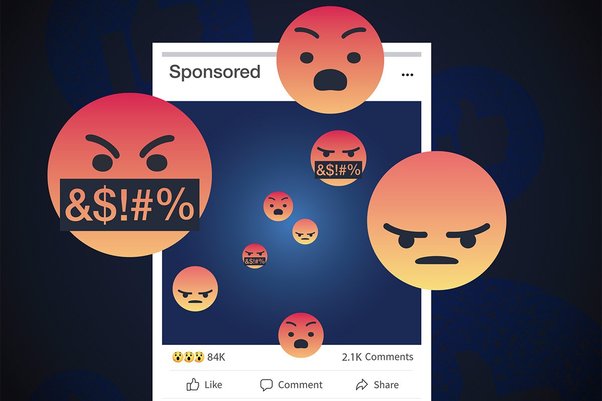New report shows how Syrian-Russian money laundering network uses anonymous companies in the EU and UK Overseas Territories
Global Witness reveals today the workings of a Syrian-Russian money laundering network that has helped prop up President Bashar al-Assad’s regime during the ongoing armed conflict. This assistance ranged from helping the regime purchase fuel and banknotes to providing front companies possibly used by its chemical weapons and ballistic missiles programme. Close associates of the network also appear to have helped embargoed North Korean firms evade UN sanctions.
The report, Assad’s Money Men in Moscow, exposes a previously little-known money laundering network headed by Mudalal Khouri, a Syrian-Russian banker and fixer. Its operations have been facilitated by anonymously owned companies in Europe and the British Overseas Territories.
“Our investigation starkly illustrates that money laundering is not a victimless crime,” said Nienke Palstra, Senior Anti-Corruption Campaigner at Global Witness. “We have exposed, in detail, how a money laundering network appears to have been used to support the brutal regime of President Bashar al-Assad and his accomplices, including by setting up companies that were likely a front for the Syrian chemical and ballistic weapons programme,” she added.
Mudalal Khouri moved from Syria to Moscow in the 1970s and has since built up a complex web of banks, companies, and offshore entities. Aided by a close circle of employees and family members, Khouri has used these entities to move money for both repressive regimes and organised crime groups. Global Witness estimates that the network has likely moved at least $4 billion for a variety of clients including the al-Assad regime.
“The assistance of groups like the Khouri network has helped to keep the Syrian regime’s war effort going, with the conflict now in its ninth year and contributing to some of the worst human rights abuses of the 21st century,” said Palstra.
Khouri and his network have exploited the tools of the financial system and weaknesses in the anti-money laundering frameworks in both the British Overseas Territories and EU jurisdictions to carry out their activities, including transacting with Lithuanian and Cypriot banks and incorporating companies in Cyprus and the British Virgin Islands.
“Yet again we see anonymous companies in the EU and British Overseas Territories serving as the getaway cars for money laundering; companies, which al-Assad and others may still be hiding behind,” said Palstra.
Our revelations come as Syria faces mass starvation and an unprecedented economic crisis. The beginning of this year saw another escalation of attacks in north-west Syria from the Russia-backed al-Assad regime, creating the worst displacement crisis of the war so far, with almost 1 million people (including over 500,000 children) forced to flee.
“Ultimately, our investigation highlights the utter failure of global leadership to tackle the endemic corruption and war crimes of al-Assad and his accomplices, enabled and bankrolled by money laundering networks such as the one we expose in this report,” said Martha Marcuson, Campaigns Advisor at Global Witness. “The horrors of the current hunger crisis show the grave consequences this failure has for the Syrian people,” she added.
Global Witness is calling on the European Commission to get tough with Member States that have failed to implement the 5th AML Directive; for all states to properly verify and police information in company registers; and for the UK to issue an Order in Council to require the Overseas Territories to set up public registers if they have not made significant progress in doing so by the end of 2020.
Some of the individuals and companies that Global Witness has identified as being part of the Khouri network have already been placed under sanctions by the United States, with our investigation revealing previously hidden links between Mudalal Khouri and some of these sanctioned individuals.
Using sanctions notices, publicly available documents, leaked data and interviews, Global Witness has exposed the activities of the Khouri network, including that it:
- provided front companies – one in Cyprus and two in the British Virgin Islands – possibly used by the sanctioned Syrian Scientific Research Centre (SSRC), responsible for Syria’s chemical weapons and ballistic missile programmes;
- attempted to purchase a chemical compound capable of being used in manufacturing explosives, on behalf of the al-Assad regime;
- facilitated the purchase of fuel for the Syrian regime;
- enabled the Syrian Central Bank to avoid sanctions and get access to hard currency;
- appears to have assisted the Makhloufs, powerful relatives of President al-Assad, to move $40 million into Moscow property;
- likely operated with the tacit consent of the Russian intelligence services, with one of Mudalal Khouri’s business partners appearing to be a member of the foreign intelligence service (SVR).
Close business allies of the Khouri network also provided financial services to North Korean entities and individuals already embargoed by the United Nations or US.
The central role played by anonymous companies in facilitating the Khouri money laundering network serves as yet another urgent reminder of why the UK’s Overseas Territories and the EU must reveal the real beneficial owners of companies.
The EU should also revise its proposed global sanctions regime to allow for asset freezes and other measures against those responsible for money laundering and corruption, not just those directly tied to human rights abuses.
/ ENDS
Notes to editor:
- The context of a cash-strapped regime: In the first years of the war in Syria, President Bashar Assad’s regime was running out of men, money and material. Damascus turned to Russia, to Iran and to networks of expatriate Syrians who stepped in as fixers. As part of these efforts, Mohammed Makhlouf, al-Assad’s uncle and de facto banker, travelled to Moscow in mid-2012 to seek financing for the state and a safe haven for the al-Assad family’s money should the regime collapse. Mudalal Khouri, the regime’s longstanding fixer and financer in Moscow, quickly established himself as Makhlouf’s right-hand man, according to several well-placed sources.
- The Khouri network and Makhlouf property in Moscow: In November 2019, Global Witness revealed that the Makhloufs, relatives and accomplices of President al-Assad, had bought US$40 million worth of skyscraper property in Moscow. This included the wife of Syria’s richest man Rami Makhlouf (now at the centre of a very public rift with the al-Assad Presidency) and Hafez Makhlouf, who stands accused of committing grave human rights abuses. Read more in ‘Assad Henchmen's Russian Refuge’ (2019). Today’s report reveals that the Khouri network appears to have assisted these purchases.
- Scientific Studies and Research Centre: Since the war began, the SSRC has designed and manufactured chemical weapons, barrel bombs and many of the missiles used against Syrian civilians and hospitals. It is therefore complicit in the regime’s war crimes.
- Laundromats: In addition to the main Global Witness report, a joint analysis by Global Witness and the Organised Crime and Corruption Reporting Project (OCCRP) is published today which uses leaked bank data to reveal how Khouri network companies appear to have received funds from other well-known laundromats and frauds, including the so-called Magnitsky case tax fraud and potentially also suspicious share deals which benefitted Sergei Rodulgin, a close friend of Russian President, Vladimir Putin. Read the full article here.
- Beneficial ownership transparency: Global Witness has long called for the real beneficial owners of companies to be made publicly available, lifting the veil of anonymity which makes them so appealing to the criminal and the corrupt. In recent years, both the UK and EU have legislated to require companies to publicly disclose their beneficial owners. By the end of 2020, the UK’s Overseas Territories – which includes some of the most infamous tax havens such as BVI and Cayman Islands – must make progress on setting up similar registers, or the UK Government must issue an Order in Council forcing them to do so. Global Witness calls on all jurisdictions to publicly reveal the beneficial owners of companies, as well as ensuring the information contained in the registers is verified and policed, sanctioning breaches appropriately. In particular, it is crucial that the UK’s Overseas Territories follow through with setting up their registers and ensuring their efficacy. At the same time, the EU must take action against Member States that continue to drag their feet - with a recent Global Witness analysis finding only five EU Member States had implemented a public register that is free to access. Cyprus does not currently have a register of the beneficial owners of companies that is available to all, despite being required by the 5th AML Directive to set one up by January 2020.


